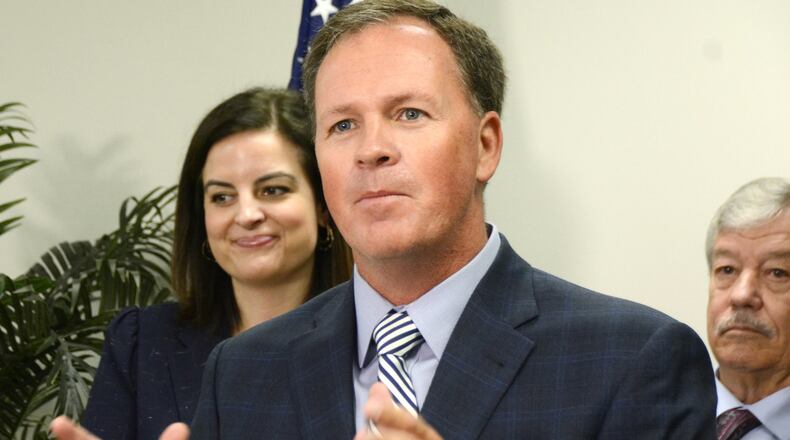He sent the tax commissioner revised numbers with an aggregate 14.5% increase after he reexamined some areas where the tax commissioners thought his numbers were “soft.” and that number was denied on Friday.
The commissioners sent a letter to all the state lawmakers who represent the county and copied Gov. Mike DeWine denouncing the tax commissioner’s stance.
“The Butler County board of commissioners encourages the General Assembly and requests its representatives and senators to challenge the State Tax Commissioner and his unreasonable determination about our county’s property valuation,” the letter reads.
“The world, nation, and most applicably, the state of Ohio is in the midst of a pandemic that has already economically devastated county residents and businesses, and could bring more harm to the economy and the housing market with even greater financial consequences.”
Reynolds has maintained the state changed the way it has valued property in this reassessment, only considering sales from last year rather than taking an average over the past three years. In an email to Reynolds, Shelley Wilson, the tax program executive with the state, denied the allegation.
“That simply is not true,” she wrote. “We have always used the sales from the year immediately preceding the tax lien date to make that finding as the sales nearest the lien date are the best evidence of value as of that date. We examine sales throughout the triennium to determine the trend in market conditions which also informs our analysis.”
Reynolds said the next step, since he is refusing to accept the state’s increase, would be for the tax commissioner to formally order him. He would then appeal, he said.
Generally, increased property values do not translate to higher tax bills unless a jurisdiction alters an existing levy or asks voters to approve a new levy. Taxpayers in West Chester Twp. will see a tax increase if voters approve two safety service levies in November.
Homeowners in the Hamilton and Ross school districts will also see increases — about $27 and $61 per year, respectively, on a $100,000 home if values go up 20%. Both school boards approved moving inside millage from the general fund to permanent improvement funds to take advantage of that coming increase.
Commissioner Don Dixon asked Reynolds during his budget hearing last week if there is a way to lower taxes. Reynolds said that is unlikely.
“The schools would never buy in,” Reynolds said. “Through this board and my office we can’t attack the largest part of the tax bill which is the schools.”
Reducing tax bills has long been a goal of Dixon’s and before the pandemic hit, he told the Journal-News the commissioners might have been able to consider using some sales tax to facilitate it. He said “this COVID thing has knocked us off track.”
“The goal was to get our sales tax balances up high enough that we could step in and use some sales tax money to reduce the millage,” Dixon said. “The money’s still there for users but the taxes go down for the residents.”
Commissioner Cindy Carpenter also weighed in.
“How can they know from up there what this community looks like, if it’s declining, if it’s growing,” Carpenter said adding “there are all these are things that you have to know before you put a price tag on a house.”
CONTINUING COVERAGE
The Journal-News has followed the fight over Butler County property values for months to explain what it could mean to county residents. We have reporters in our communities following the important stories that impact your finances.
About the Author

